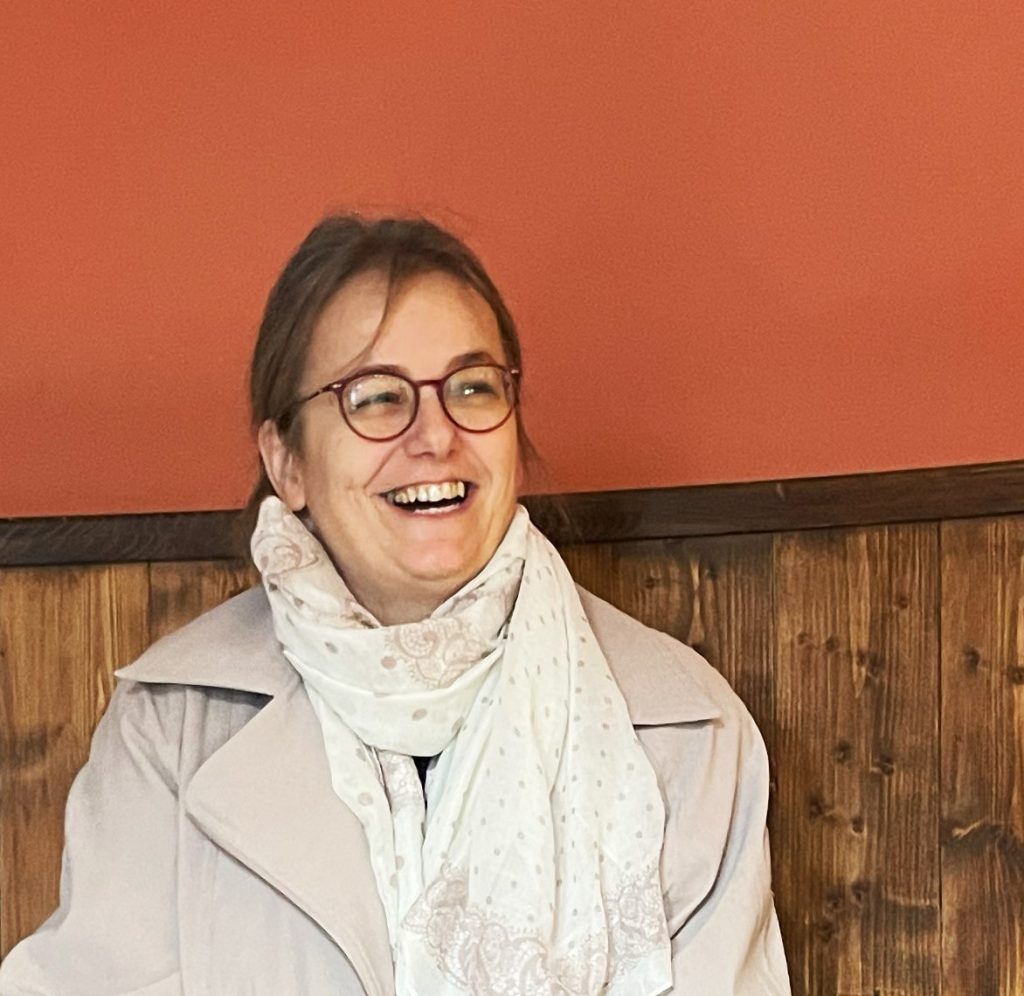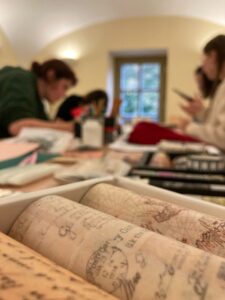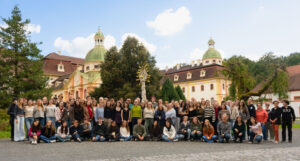an exclusive interview with Radka Macháčková by Katarina Šajić

In the woods of the eastern part of Germany, near a small town called Ostritz on the border with Poland and the Czech Republic, lies Kloster Saint Marienthal. It is the oldest cloister in the country, consisting of 10 hectares where you can see the main church, convent, and other buildings for relaxation. Its beautiful and peaceful setting attracts tourists from all over the world.
The history of this place is also fascinating. The cloister was destroyed a few times, but the courage of the nuns helped to rebuild this magnificent complex every time after it had been destroyed.
Around 30 years ago, the nuns came up with the idea to gather kids from many countries to meet new people and learn about other cultures.
Today, youngsters from Germany, Poland, the Czech Republic, Sweden, Italy, Latvia, Spain, and Bosnia and Herzegovina gather twice every year to exchange knowledge and show their talents.
But none of this would be possible without the help of teachers. The one who gave us this interview has been here multiple times.
Radka Macháčková is a professor from the Czech Republic, a teacher of History and Latin, and very experienced in life. She offered a fascinating insight into the St. Marienthal seminar and the way it has changed through the years.
The fact that she does not know how many times she has been here since 1998 (she thinks it was 7 times) tells us that St. Marienthal has become like her second home.
“I was amazed by how beautiful the place is because I’m also a teacher of history, but at the same time, it was sad to see that half of the buildings were totally neglected. The buildings where we stay now were in ruins. They were falling apart and it was muddy, dirty, and rundown. The central part where the convent now stands was very beautiful at that time and I was impressed by the courage of the sisters to start working on its renewal,” said professor Macháčková when asked about her impressions of the cloister.
“What first impressed me was the atmosphere of friendship and I would say almost equality between teachers and students. It was like one group of people focused on one goal,” she added with delight while remembering her first seminar here.
St. Marienthal is famous for its workshops, so we had to ask her how they looked back in the day.
“We did not have specific workshops; we had a theme that we needed to develop,” she explained. “We had two themes that year—ecology and history.”
She gave us a detailed explanation:
“There was this program that focused on ecology, responsibility, and sustainability. I remember us getting shovels and planting trees.”
She also shared some details about the historical part:
“We had eyewitnesses of the Holocaust and Auschwitz. Students interviewed them and after that, they debated about it. It was very hard for the survivors to talk about all of those bad experiences. Many tears were shed in those days,” she commented.
When we asked her about her most memorable moment here, she told us a story about the witnesses.
“It was very painful for the witnesses to talk about their experience in those camps. It was also hard for them to remember because those were elderly people who survived those horrors when they were kids. They were scarred for life. Our last meeting with them was in a church and everybody could read from the Bible and sing together. I was asked to find any extract from the Bible and I remember reading that, no matter what you suffer, God will wipe your tears from your eyes. I remember that the elderly ladies were very moved.”
“It was very difficult to work with survivors,” she added, “ because they had to relive those terrible experiences. That is why I admired their courage. They talked a lot, but on the last day, they said that they would not think about those painful moments again. Even though they did not consider it cruel (they thought it was a perfect idea to educate people about what happened), they were so emotionally drained that they could not handle opening their wounds again. I believe that their past served as a lesson for the future.”
A project like this has never happened again, but even today the workshops have great value. Their goal is to support the growth of children and the development of their talents.
She also said that the whole complex grew and changed for the better. She complimented it, saying that construction is finally finished and emphasized its modern look.
The teacher said that many things have stayed the same even after 26 years.
“What remains is that wonderful spirit of being welcomed and that the people are all friendly and enjoy their relationships with one another. Students still love to socialize and meet people from other countries.”
But she mentioned one crucial difference:
“The students from the countries of former Western Europe seemed to be more religious. Students from our country were never exactly religious because of the atheist communist regime that prevented us from receiving religious education or influence. So they came here and were pretty much shocked by how many of their peers from Western Europe were actually believers.
However, the gap changed because now the students seem to me to be very similar to our students and don’t see a difference. This means that in Western Europe, probably in the young generation, Christianity is not as important as it used to be and seems to have lost its role.
But it would be rather interesting to ask others, but this is my impression.”
She mentioned how important it is to meet people from other places.
“Well, I think this seminar is very good because when you meet new cultures, you acquire knowledge, and it helps break stereotypes and false information about a country and its people.”
When we asked her how hard it is to lead a group of teenagers, she answered that teachers should be patient and understanding. She also joked that she criticizes her students for not going to bed early.
At the end, she shared an anecdote about her first time in St. Marienthal:
“Back then I was much younger and I suppose most people couldn’t tell me apart from the students. So we danced together, worked together, and listened to witnesses together. Teachers were more relaxed back then. They didn’t only supervise but also participated in the activities—that’s a huge difference. But for me personally, of course, what changed is that now I’m a parent. I have my own children at the same age, so maybe I see it from a different perspective. The problems, the behavior, and the likes and dislikes—it’s a different thing if you have your own children and you suddenly see these people from a parent’s perspective, right?”


